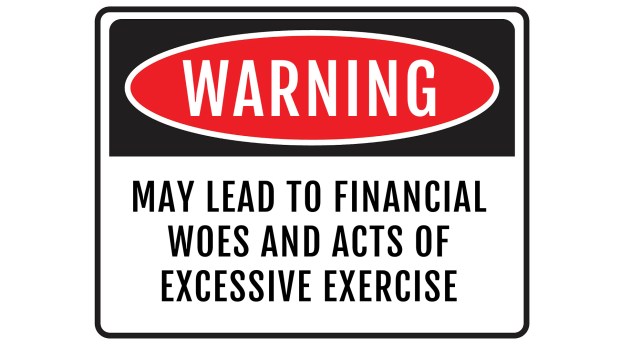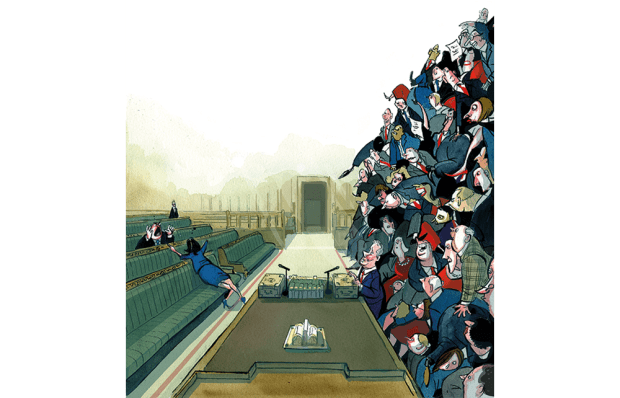Driving force
Sir: As a long-distance UK lorry driver I am very aware of the issues raised by Rodney Pittam (‘So long, truckers’, 18 September). However the job can provide an income of more than £40,000 to those with a practical rather than an academic bent. Yes, there is unpleasantness, discomfort and a combative attitude from other road users. But there is also a high degree of independence, a chance to see this country and others, and a sense of pride in the job. Better facilities are overdue in this country for drivers, and this may go some way — together with greater remuneration — to creating more respect for the work we do.
David Darran
Cefnpennar, Rhondda Cynon Taff
One for the road
Sir: I very much enjoyed Rodney Pittam’s recollections of life on the road in the 1980s. Lorry drivers weren’t the only ones to enjoy the freedoms on offer. As students my girlfriend and I hitched thousands of miles across Europe and Asia and saved a fortune doing it this way. The best and longest lifts were with truck drivers who were almost always engaging, interesting and very generous when it came to meal stops and overnight accommodation.
David Long
Boxford, Suffolk
Bitter sweets
Sir: Hannah Moore’s ‘Sweet and sour’ (11 September) wonderfully captured the sad state into which Oxford Street is deteriorating, with pop-up tourist and candy shops. Taking the 139 bus and seeing an ‘American candy shop’ every two minutes is heartbreaking: not only do they look cheap and shabby, they also blare awfully loud music. No wonder no one goes into these shops other than to see what the fuss is about. Westminster council needs to rid us of these visual pollutions and reclaim those spaces for independent shops and cafés to bring back Oxford Street’s prestige.
Anna Goodmaker
By email
Live and let live
Sir: Assisted suicide, or assisted dying, is something I never want to have imposed upon me. It is often a way of greedy family members getting rid of someone who has been ‘hanging around for too long’, so that they can get their paws on an inheritance. ‘Put them out of their misery’ is a phrase often used. I believe that all legislators should read Dr Joel Zivot’s piece
(‘Last rights’, 18 September), think how they would feel about enduring such treatment and vote accordingly.
Sally A. Williams
Dinas Cross, Pembrokeshire
A peaceful end
Sir: Dr Joel Zivot’s claim that assisted deaths are not peaceful has no evidence base. It is also deeply offensive; to equate the execution of a prisoner with assisted dying — the rational desire of a terminally ill person to control their imminent death — is abhorrent. With permission I relay the following from Dr Uslander and the Revd Uslander of Empowered Endings in California, who have, unlike Dr Zivot, supported many patients through medically-aided deaths: ‘Our vast experience at the bedside with patients and their families indicates that there is no pain, suffering or discomfort at the time of death. This is supported by all generally accepted medical knowledge regarding the impact of the prescribed medications and the deep state of unconsciousness.’ It is up to Dr Zivot to get his evidence published in a peer-reviewed paper, as per accepted practice in the scientific community. To present his alarmist and speculative concerns to the public without doing so is profoundly irresponsible.
Dr Jacky Davis, chair of Healthcare Professionals for Assisted Dying
London NW5
Putsch off
Sir: Peter Hitchens is wrong to compare the Kiev events of 2014, which he describes as ‘an unconstitutional mob putsch’, with western intervention in the Middle East (‘Full circle’, 11 September). The events in Kiev started as a grassroots movement in support of an agreement with the EU which the government was on the cusp of signing before backtracking and signing a deal with Russia instead. Police violence resulted in mass protests which morphed into calls for the president’s resignation. Months later protestors tried to enter President Yanukovych’s residence, only to be told by his housekeeper that he had fled in a helicopter along with his collection of paintings. This was no putsch but a surrender of central authority by a weak president who had miscalculated. Western ‘intervention’ was limited to mediation, as well as moral and medical support.
Peter Shutak
Fleet, Hampshire
Taking office
Sir: Martin Vander Weyer (Any Other Business, 11 September) suggests that continued home working by the Bank of England is ‘a plain invitation to bad debts’ in commercial property. The notion that employees should undertake long, expensive commutes into city centres to shore up office investments (or indeed train operators’ revenues) flies in the face of real commercial imperatives. The extent to which any organisation, private or public, asks employees to return to the office should be determined solely by how this affects their ability to be productive and happy at work. Organisations will no doubt be eyeing opportunities to save on office rents as well. In any event, commercial property investments may be recoverable through conversion to retail, leisure or residential uses. This would help to address the housing affordability crisis without costing green space — neither the Bank nor the government should want to inhibit that.
Robert Beauchamp
Colchester, Essex
Write to us: letters@spectator.co.uk
Got something to add? Join the discussion and comment below.
Get 10 issues for just $10
Subscribe to The Spectator Australia today for the next 10 magazine issues, plus full online access, for just $10.
You might disagree with half of it, but you’ll enjoy reading all of it. Try your first month for free, then just $2 a week for the remainder of your first year.














Comments
Don't miss out
Join the conversation with other Spectator Australia readers. Subscribe to leave a comment.
SUBSCRIBEAlready a subscriber? Log in